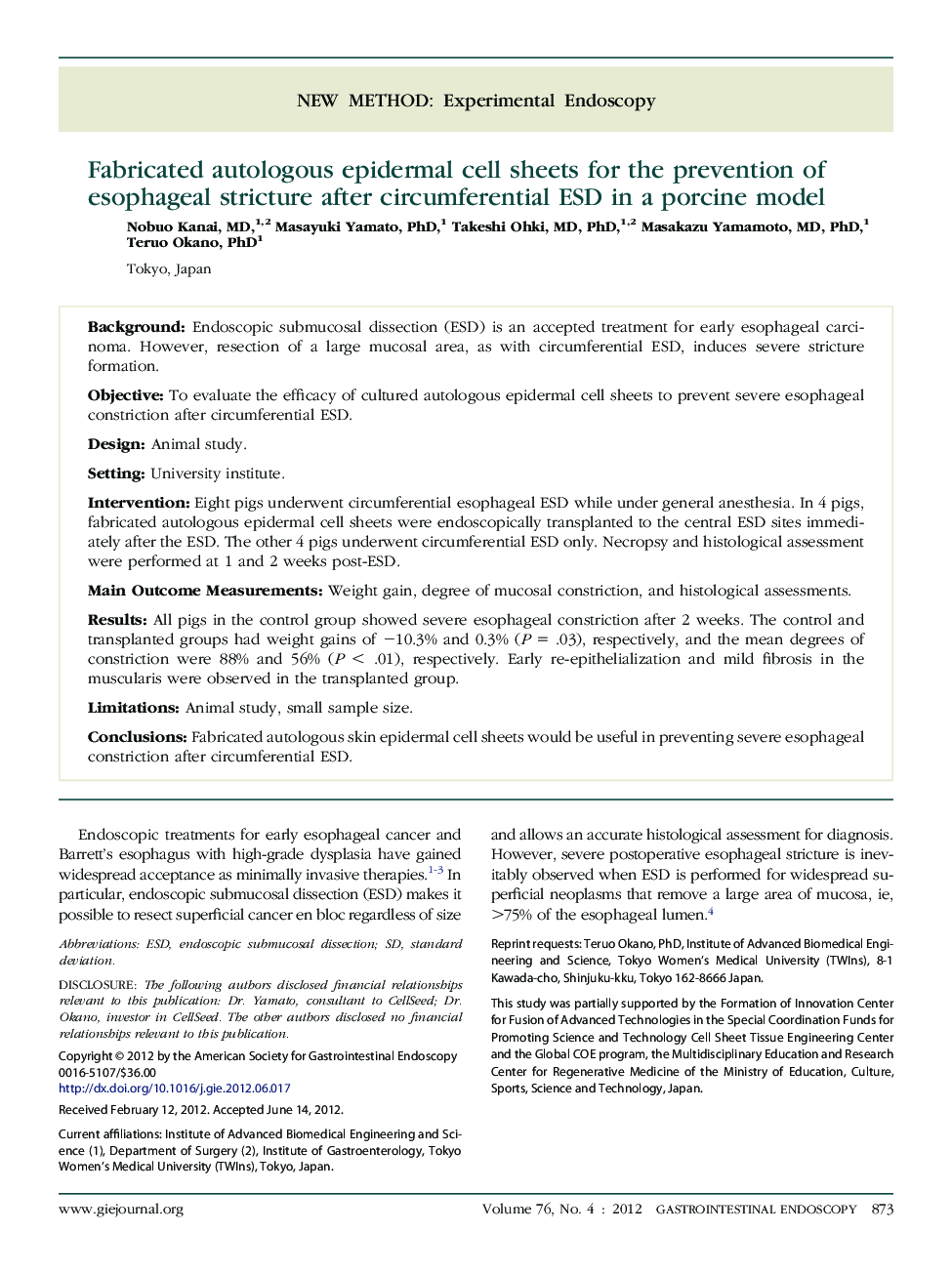| Article ID | Journal | Published Year | Pages | File Type |
|---|---|---|---|---|
| 3304677 | Gastrointestinal Endoscopy | 2012 | 9 Pages |
BackgroundEndoscopic submucosal dissection (ESD) is an accepted treatment for early esophageal carcinoma. However, resection of a large mucosal area, as with circumferential ESD, induces severe stricture formation.ObjectiveTo evaluate the efficacy of cultured autologous epidermal cell sheets to prevent severe esophageal constriction after circumferential ESD.DesignAnimal study.SettingUniversity institute.InterventionEight pigs underwent circumferential esophageal ESD while under general anesthesia. In 4 pigs, fabricated autologous epidermal cell sheets were endoscopically transplanted to the central ESD sites immediately after the ESD. The other 4 pigs underwent circumferential ESD only. Necropsy and histological assessment were performed at 1 and 2 weeks post-ESD.Main Outcome MeasurementsWeight gain, degree of mucosal constriction, and histological assessments.ResultsAll pigs in the control group showed severe esophageal constriction after 2 weeks. The control and transplanted groups had weight gains of −10.3% and 0.3% (P = .03), respectively, and the mean degrees of constriction were 88% and 56% (P < .01), respectively. Early re-epithelialization and mild fibrosis in the muscularis were observed in the transplanted group.LimitationsAnimal study, small sample size.ConclusionsFabricated autologous skin epidermal cell sheets would be useful in preventing severe esophageal constriction after circumferential ESD.
